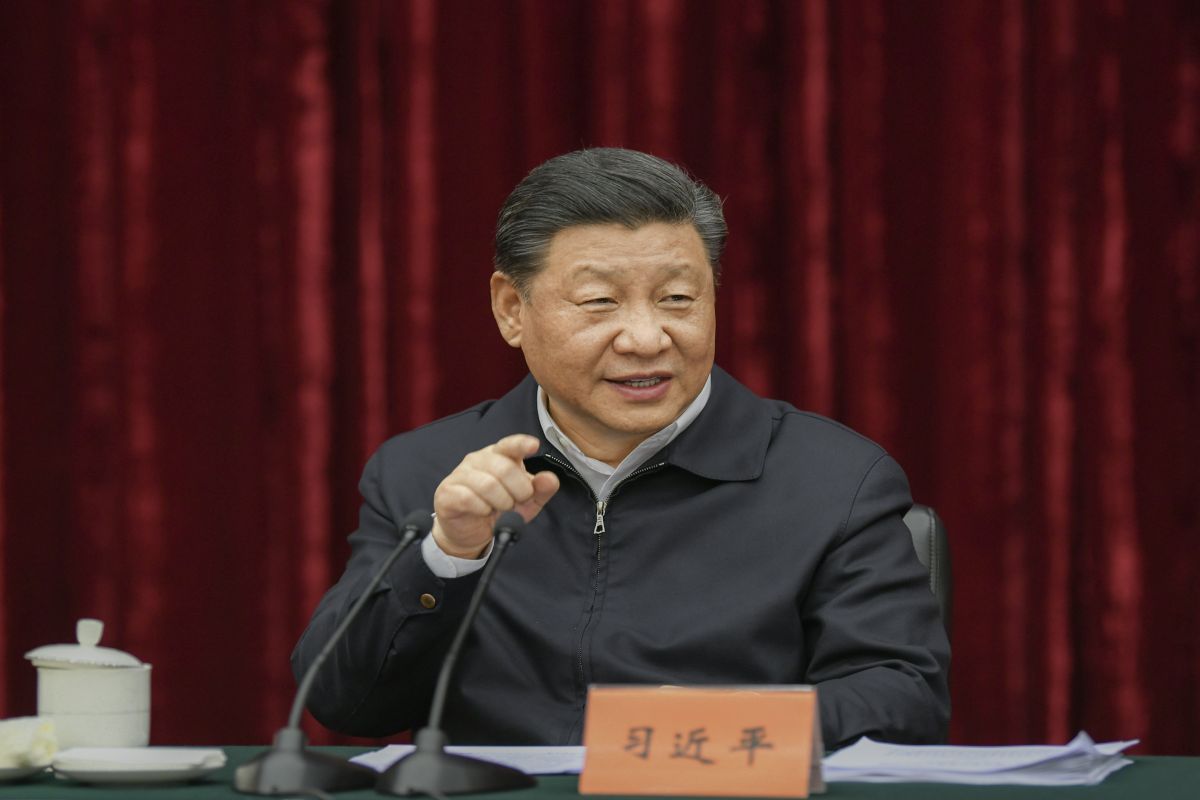US pauses aid to Ukraine, say reports
US President Donald Trump has paused all aid to Ukraine till as much time as it takes to determine President Volodymyr Zelensky's commitment to ending the war with Russia,
China recently launched thousands of 5G base stations throughout its Xinjiang region, raising concerns the technology will be for greater digital surveillance of Uyghurs rather than the state use of economic development, according to US government-funded news service.

Chinese President Xi Jinping (Photo: IANS)
China recently launched thousands of 5G base stations throughout its Xinjiang region, raising concerns the technology will be for greater digital surveillance of Uyghurs rather than the state use of economic development, according to a US government-funded news service.
China’s Information Technology Ministry last month announced the number of 5G base stations in use across China has exceeded 1.96 million. “The high-quality industrial internet network covers over 300 cities in China, accelerating the transformation and upgrading of traditional Chinese enterprises,” ministry official Wang Peng was quoted saying by state media outlet Xinhua.
Advertisement
With the aim to fully digitize its economy and society, Beijing’s build-out in Xinjiang is part of the expansion of the 5G tech for broadband cellular networks that started in 2019.
Advertisement
Xinjiang has the largest land area of all the provinces and autonomous regions in China with an area of 642,800 square kilometres, Radio Free Asia (RFA) reported.
“The 5G network rollout across the entire region will augment an existing pervasive digitized system that monitors the movement of residents through surveillance drones, facial recognition cameras, and mobile phone scans as part of China’s efforts to control the predominantly Muslim population,” RFA quoted experts as saying.
Josh Chin, a journalist with The Wall Street Journal, said, “It’s definitely an interesting development. I have to imagine it will only make surveillance that much more pervasive and efficient.”
The rollout of 5G base stations across the vast, sparsely populated region is “overkill,” according to Geoffrey Cain, a U.S. journalist and China analyst.
“It’s very extreme, and it also strikes me as very suspicious,” he told RFA.
UN High Commissioner for Human Rights Michelle Bachelet in her long-awaited report in August said the Chinese government has committed abuses that may amount to crimes against humanity targeting Uyghurs and other Turkic communities in Xinjiang.
The report by the outgoing UN rights chief contains victim accounts that substantiate mass arbitrary detention, torture, and other serious human rights violations and recommends world to take action to end the abuses.
It outlined China’s crimes against humanity due to its “arbitrary and discriminatory detention” of Uyghurs and other Muslims.
Adrian Zenz, in an interview with ANI, termed this bombshell report as ‘overall positive, very conservative and cautious in its approach. Zenz is a Senior Fellow and Director in China Studies at the Victims of Communism Memorial Foundation, Washington, DC.
“My assessment of the report is overall positive, it’s useful but of course, it’s not perfect at all and there are some shortcomings in it. The report is very conservative and cautious in its approach,” Zenz said.
Advertisement